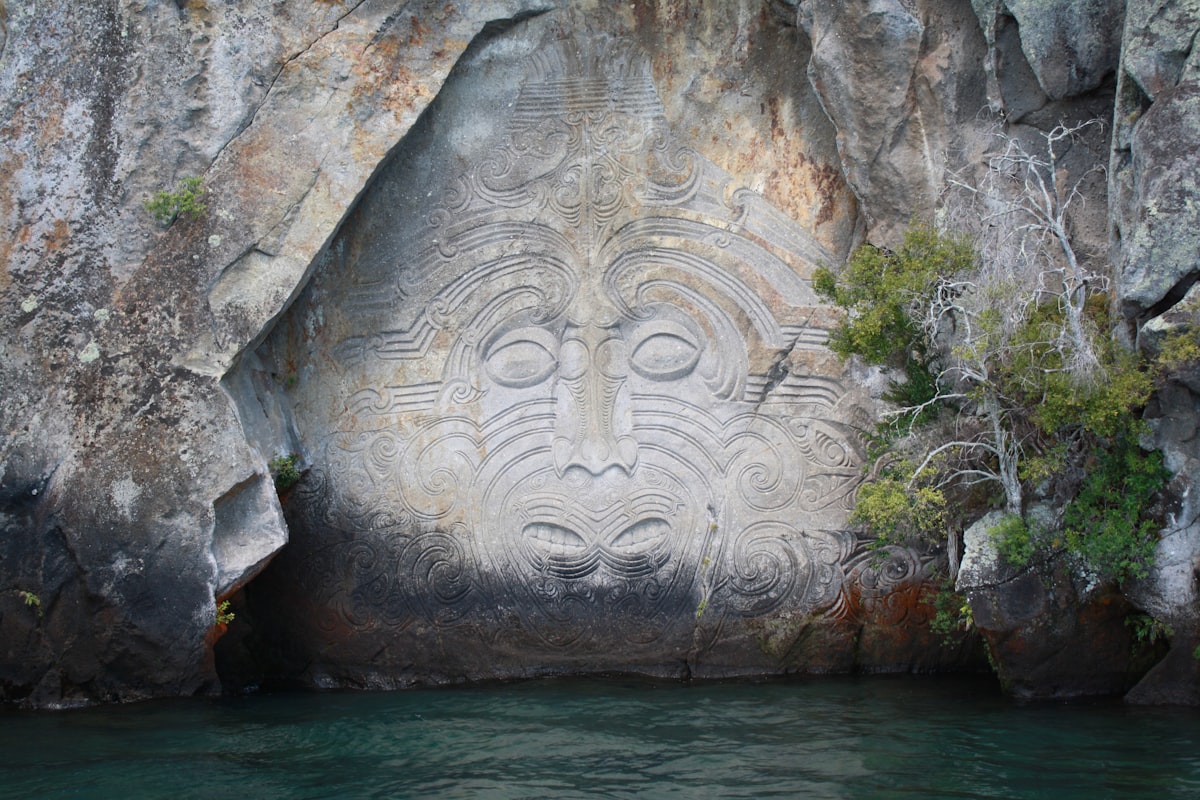The Rub
Indigenous rights are under attack, for the same reason they always are.

The ACT Party's attempt to neutralise New Zealand's founding document, Te Tiriti o Waitangi, has not started well. The far-right, ultra-neoliberal party, emboldened by the defeat of Australia's Indigenous Voice referendum – thanks largely to a campaign orchestrated between dark-money-funded, far-right think-tanks and the Murdoch media – has Te Tiriti in its sights. The result? More than 10,000 people attended a hui at Turangawaewae Marae to declare, collectively: hands off Te Tiriti.
There are some great write-ups addressing the hui's significance. This, by Newsroom's Aaron Smale, is fantastic:
The Crown’s invasion of Waikato, and the violence, death and dispossession that followed were all instigated on the same premise – Māori were getting too big for their boots and needed to be taught a lesson. The lesson always seemed to involve the loss of land and resources but also the loss of any kind of independent power. The Crown was not ‘just’ taking land – it was rearranging the terms of engagement. It was usurping power.
John Campbell and Mihingarangi Forbes also have excellent write-ups.
Of course, media are also giving near endless space to ACT leader David Seymour to advance his arguments for his proposed Treaty principles bill. Despite the fact that his statements on the Treaty and the effects of his party's proposed bill span a spectrum from specious to ahistoric to false, they're rarely checked or disputed when he makes them. His disinformation is also couched in language like "fairness" and "rule of law" and "not discriminating on the basis of race" – concepts that no-one opposes, which has the effect of making his disingenuousness appear ethically watertight. But it's not, and never has been. There is nothing fair in re-writing a treaty that was almost immediately broken and then dismissed as a "nullity", only to be given reluctant, limited recognition almost a century later. There's no rule of law in a system that sees Māori imprisoned at twice the rate of Pakeha for the same crimes. (To be fair to ACT, there is plenty of discrimination on the basis of race in New Zealand, but practically all of it is to the benefit of Pakeha.)
Seymour's prevarication is expected, as someone whose career was born and bred for years in a series of murky Atlas Network think-tanks (Seymour's real-world work experience is around ten months work as an electrical engineer.) What's interesting is that the major think-tanks one would expect to play a major role in an attack on Te Tiriti have been – since the hui – mostly silent. Don Brash's Hobson's Pledge has, at the time of writing, said nothing. The reliably mask-off NZCPR's last post is a piece that wishes members Merry Christmas.
Add that to Trotter's and Hooton's takes (detailed below) and it looks like three strikes for war metaphors. This is horrific, dangerous rhetoric, but I can't see them stopping.
Of course, the think-tank adjacent opinionists are still opining. NZCPR's "Breaking Views" blog is a round-up of reactionary opinion from throughout NZ, and it's enlightening, in a backwards way. Climate change denier Richard Treadgold, founder of miniature think-tank "Free New Zealand," has a bit that begins by calling Māori words juvenile, progresses rapidly to cannibalism, and gets worse from there. Sandra Goudie, former National MP and former anti-vax mayor of Thames, is there with a bog-standard piece of Treaty denial that insists that the "principles of the Treaty" don't exist and that the Treaty doesn't actually count because "the first real constitutional document was Queen Victoria’s Royal Charter of 1840 establishing New Zealand as a separate British Colony."
The darkest – and by far the weirdest – response is by Chris Trotter, writing at Bryce Edward's Democracy Project. He's not a think tank guy but it's worth mentioning, because his take is cooked to the point of being 0n fire: the column is an extended fantasia about an imminent actual shooting war between Māori and Pakeha:
As the bicentenary of the signing of Te Tiriti looms ever nearer, the Pakeha settler state faces two, equally unpalatable choices. It will either have to accede to a Māori-led constitutional revolution, or find its own, twenty-first-century equivalent of General Cameron. A Pakeha military leader prepared to shove back harder than the movement for tino rangatiratanga can push.
This is the sort of thing best dealt with by backing away slowly and avoiding eye contact. It's useful only in that looking at what the weirdo commentariat is churning out might provide clues as to the direction that the think-tanks' inevitable public campaigns might eventually take. What's more helpful is to remember what's actually driving all this. It's happening for the same reason far-right think-tanks have taken aim at indigenous rights all over the world.
"The last Government quietly paused oil and gas exploration," is an article by the excellent climate reporter Olivia Wannan at Stuff. The reason cited for the fossil fuel exploration pause is, of course, indigenous rights.
As revealed in an Official Information Act response, Woods’ decision came after a hui (meeting) in January 2022 with eight iwi groups. The leaders asked for a pause on permits, so they could better focus on consultation about how the country will transition away from fossil fuels.
Some activists warn the Government could be in breach of The Treaty of Waitangi (Te Tiriti o Waitangi) if it ignores the request before issuing onshore and offshore exploration permits.
And there's the rub. To put it very simply: indigenous rights (potentially) stand in the way of what colonist corporations see as their unfettered right to enclose land and dig stuff up for profit. It's always been like this. Let's return to Newshub's Alan Smale:
The Land Wars happened because the Crown would not tolerate being told Māori were not going to sell. But it framed this as a rebellion against its (imagined) authority. The initial impetus for this conflict occurred when the Crown wanted to buy a piece of land from an individual in Taranaki. The senior leader of the iwi in Waitara, Te Rangitake, refused to recognise the sale as the land was collectively owned in line with Māori tikanga. The Crown sent in the troops to force the sale. The rest, as they say, is history.
That's why the far-right think-tanks fight both climate change measures and indigenous rights with equal alacrity – they're terrified of what happens if indigenous people finally get given a real say about what happens on the land they never ceded to colonists.
Looks like I missed another race-war alarmist in the reliably unreliable Matthew Hooton. An opinion piece by AUT University chair Rob Campbell in Newsroom reports:
[Hooton] pondered a “full-on confrontation” with “Māori activists” and numbered up police and military strength noting that “it wouldn’t take much for law enforcement to be overwhelmed”.
That's two! Peddler of imperialist derring-do Ian Fleming had this to say about things that happen twice: "Once is happenstance. Twice is coincidence. Three times is enemy action." It'll be interesting – in a bad way – to see how the "just asking questions about our military capacity in the event of an actual civil war" narrative pans out, and whether that's one that the think tanks will eventually run with. I hope not, but I expect to be disappointed. The above opinion piece is well worth reading, not least since it shouts out to our friends the Atlas Network. I never stop being happy to see that all-encompassing, media-hacking, neoliberal vampire squid named in the news.
For an article about what Māori are actually up to outside of the imagination of past-it Pakeha columnists, check out Nadine Anne Hura's fantastic article, "Five climate lessons from Māori communities (that are guaranteed not to depress you)."
Today In (Keeping) Tabs (on the Think-Tank /Media Confluence)
Apologies to Today In Tabs for the headline, but thank you to Today In Tabs for the shout-out to my last piece, All The Garbage I Found On Substack In One Hour.
The New York Times has an incredible expose on "anti-woke" activism targeting American universities that omits only one crucial factor: the outsize role played by the New York Times in "anti-woke" activism targeting American universities. To recap: a media feeding frenzy on allegations of plagiarism made by openly mendacious think-tank employees led to Harvard President Claudine Gay's resignation. Despite being warned repeatedly that they were being conned by a right-wing hit-job, the Times ran article after article after article. In the end it didn't matter that the "plagiarism" Gay committed amounted to not plagiarism:
In some works, Gay credits a source in the wrong sentence. In others, she borrows language that even those who were ostensibly plagiarized accept as common phrasing within their field of study. “I am not at all concerned about the passages,” said the political science professor David Canon, whose work the Washington Free Beacon accused Gay of plagiarizing. “This isn’t even close to an example of academic plagiarism.”
I've never managed to get my head around this fundamental weirdness – news media seem completely ignorant of the role they play in shaping perception on all kinds of issues, to the extent that it must be deliberate. I guess that's why this newsletter exists!
The Times story does a good job at identifying the think-tanks driving the the anti-DEI, anti-woke discourse, but it fails to point out that the three main think-tanks mentioned – the Claremont Institute, the Manhattan Institute, and the American Principles Project – are all past or present members of the Atlas Network. This is another inexplicable failing; you'd think that when examining a concerted attack on academic freedom, you'd at least mention the single largest common denominator.




